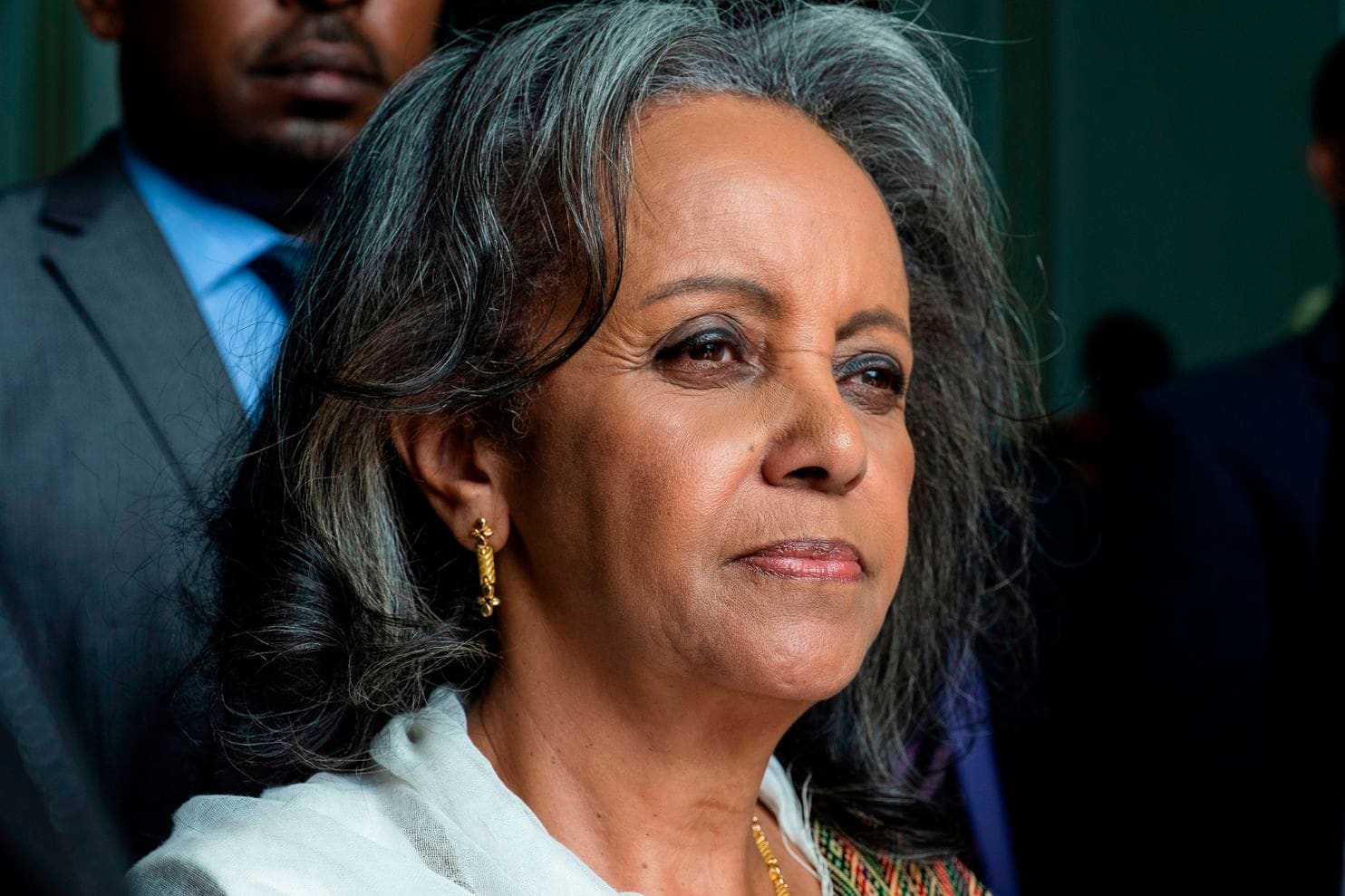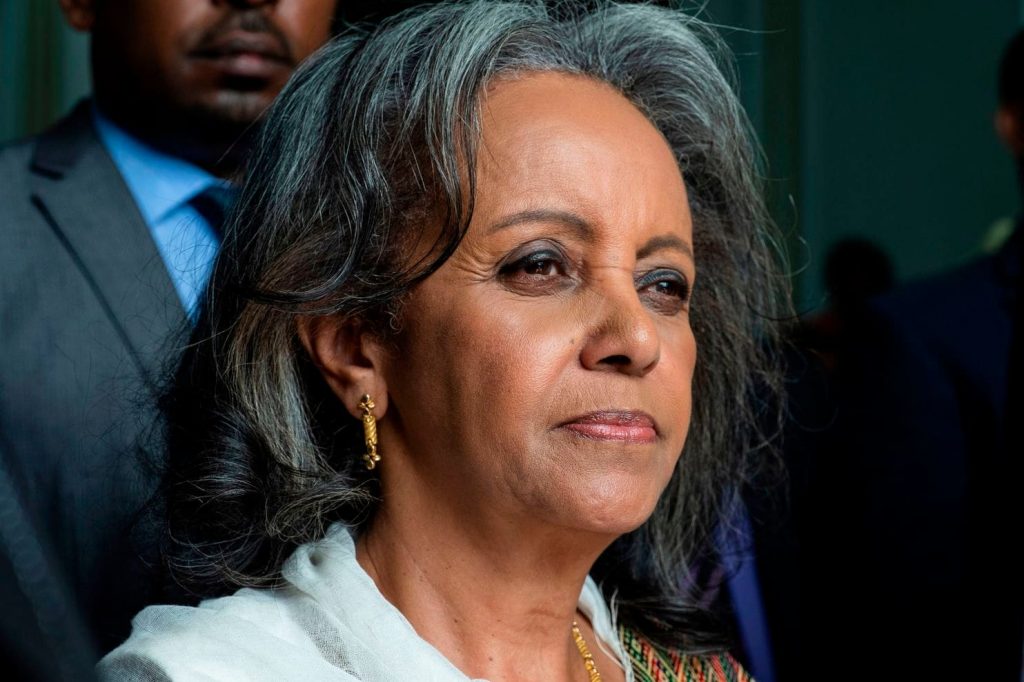Ethiopia has broken new ground on gender parity by appointing its first female head of state in the country’s modern history. This came a week after the Horn of Africa nation awarded 50% of its 20-seat cabinet slots to women.
On 25 October, Ethiopia’s Parliament unanimously elected Sahle-Work Zewde, a veteran diplomat and high-ranking UN official, as the country’s president and head of state. Sahle-Work is the only sitting female head of state in Africa.
Immediately before her appointment, Sahle-Work served as the UN Secretary-General’s special representative to the African Union and head of the UN Office to the African Union. She has also worked for the UN and her country in various senior positions.
Sahle-Work’s appointment to the top job is being hailed as a major step in the right direction by Ethiopians and foreigners alike. Her former boss, UN Secretary-General António Guterres, congratulated Sahle-Work and Ethiopia: ‘The African continent is leading the way in showcasing that women’s engagement and leadership are crucial to lasting peace.’
Zemedeneh Negatu, global chairman of Fairfax Africa Fund LLC, tweeted, ‘In just one week, the power dynamics in Ethiopia [have] been historically rebalanced: 50% female cabinet appointed, and yesterday, the first female president in our history. What an amazing time!’
The new appointments give Ethiopian women the chance to influence policy and political agendas
The position is largely ceremonial, but commands deep respect and wields much influence in promoting unity and peace. Although largely a peaceful nation, Ethiopia has recently experienced violent protests and ethnic tensions, resulting in one of the highest internal displacements in Africa.
Acknowledging this fact, in her inaugural speech Sahle-Work emphasised the need to promote peace: ‘I urge you all to uphold our peace, in the name of a mother, who is the first to suffer from the absence of peace.’
A week earlier, Prime Minister Abiy Ahmed announced a down-sized cabinet with 50% of the slots dedicated to women. Some of the female ministers were appointed to portfolios traditionally considered as men’s domain, including the ministry of defence and the newly established ministry of peace. The latter oversees key security apparatus like the National Intelligence and Security Service, Information Network Security Agency and the Federal Police Commission.
The overriding motive was to ensure gender parity in government. But the prime minister stressed that they were appointed not simply because they were women, but by virtue of their merits and qualifications which made them fit for their assigned positions.

Like many patriarchal societies, the road to successful female leaders may not be easy in Ethiopia
This is in line with one of the key promises he gave in his inaugural speech. Breaking from the country’s long-held political tradition of not offering recognition publicly, Abiy Ahmed paid tribute to his mother and his wife, giving them credit for their support and contribution in getting him to where he is today. He promised to ensure gender parity in the political system.
Although he has introduced sweeping political reforms since he came to power in April, this particular reform seems to have deeply touched the hearts of women in Ethiopia. Nahu Senay Girma, a prominent Ethiopian women’s rights activist, told the BBC: ‘We are ecstatic; as you know, we have reached 50-50 ministerial positions. We believe this is the icing on the cake, she [the president] is prominent as well.’
A young Ethiopian woman added, ‘I got really excited about what happened, it represents me, it represents the young women, it presents my mum, my sisters and it is really a happy moment for Ethiopian women and everybody.’
The current decision to bring women to the fore builds on earlier efforts – not only those of the governing Ethiopian People’s Revolutionary Democratic Front, but also its predecessors. However, few ever dreamt of having 50% female cabinet ministers and a woman president this soon. Now the country looks forward to further reforms in government, as well as improved human development and better respect for human rights.
The new president also underlined the importance of women’s and young people’s participation in building a democratic culture. The current appointment gives women the opportunity to influence policy and political agendas in a way that reflects their needs and aspirations. Although some argue that promotion of gender equality should not be left to women alone, they can inspire more younger women to take leadership roles.
The road towards successful female leaders, however, may not be easy in the Ethiopian context, as is the case with many patriarchal societies. One key challenge could be dealing with the strong inclination and preference for men to take leadership roles. In response, women should prove their worth by delivering.
The momentous decision of Abiy Ahmed’s government catapults the role of Ethiopia’s female political leaders to the next level. There is now a good chance that a critical mass of women leaders can be developed, which will help create a more inclusive society.


One Response
As long as you’re sensible with your budget, you won’t come home empty handed.